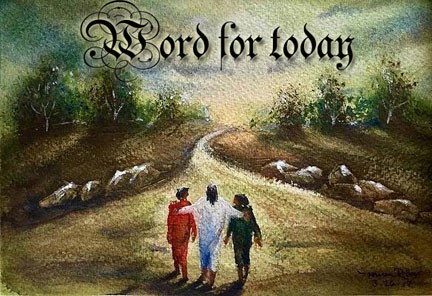Watch
Events
Articles
Market
More
Found OOMs ✔️
Stills from Knowmad the game, a chicken costume, and an AI image for "a detailed black and white photograph of a massive organ made of pitchforks and flintlocks spewing swarms of goblin locusts, along the sides dangle trembling cocoons with various animal embryos inside them, and spread across the floor are sleeping trolls oni yeti and ogres."
https://www.pinterest.com/pin/6685099441423050/
https://www.pinterest.com/pin/42150946508030196/
#dailyoom




Found OOMs ✔️
Stills from Knowmad the game, a chicken costume, and an AI image for "a detailed black and white photograph of a massive organ made of pitchforks and flintlocks spewing swarms of goblin locusts, along the sides dangle trembling cocoons with various animal embryos inside them, and spread across the floor are sleeping trolls oni yeti and ogres."
https://www.pinterest.com/pin/6685099441423050/
https://www.pinterest.com/pin/42150946508030196/
#dailyoom






Just two little rings: https://thekingdomnetwork.us/2....025/05/22/2300-year-



READINGS FOR OMER COUNT – DAY 39
Behold, I am about to fulfill the affirmative precept of the counting of the Omer, as it is written in the Torah:
“And ye shall count unto you from the morrow after the Shabbath, from the day that ye brought the Omer of the wave-offering, seven complete weeks they shall be; until the morrow of the seventh Shabbath shall ye number fifty days.”
Blessed art Thou YHWH, our Elohym, King of the universe, who hast set us apart by Thy commandments and hast given us command concerning the counting of the Omer.
This is the thirty-ninth day, making five weeks and four days of the Omer.
May the All Merciful restore the service of the Temple to its place. May it be Thy will, YHWH our Elohym and Elohym of our fathers, that the Temple be speedily rebuilt in our days, and grant our portion in Thy Torah. And there we will serve Thee with awe, as in the days of old and as in ancient years.
May Elohym be favorable unto us and bless us. That Thy way may be known upon the earth, Thy salvation among all nations. Let the peoples give thanks unto Thee, Elohym; let all the peoples give thanks unto Thee. Let the nations rejoice and exult: for Thou wilt judge the peoples with equity and lead the nations upon the earth. Let the peoples give thanks unto Thee, Elohym; let all the peoples give thanks unto Thee. The earth hath yielded her increase: Elohym, even our Elohym, shall bless us. Elohym shall bless us; and all the ends of the earth shall fear Him.
READINGS: TEHILLAH 106
Praise Yah! Oh, give thanks to YHWH, For He is excellent! For His mercy is everlasting.
Who does relate the mighty acts of YHWH? Or declare all His praise?
Blessed are those who guard judgment, Who do righteousness at all times!
Remember me, O YHWH, in the acceptance of Your people; Visit me with Your deliverance, To see the excellence of Your chosen ones, To rejoice in the gladness of Your nation, To make my boast with Your inheritance.
We have sinned with our fathers, We have acted perversely, We have done wrong.
Our fathers in Mitsrayim did not understand Your wonders; They did not remember Your many mercies, But rebelled by the sea, the Sea of Reeds.
But He saved them for His Name’s sake, To make known His might.
And He rebuked the Sea of Reeds, and it dried up; And He led them through the depths, Through a wilderness.
And He saved them from the hand of the hater, And redeemed them from the hand of the enemy.
And waters covered their adversaries; Not one of them was left.
Then they believed His words; They sang His praise.
They soon forgot His works; They did not wait for His counsel, But greedily lusted in the wilderness, And tried Ěl in the desert.
And He gave them their request, But sent leanness within their being.
And they were jealous of Mosheh in the camp, Of Aharon, the set-apart one of YHWH, Then the earth opened up and swallowed Dathan, And covered the company of Aḇiram.
And a fire burned in their company; A flame consumed the wrong.
They made a calf in Ḥorěḇ, And bowed down to a molded image.
Thus they changed My esteem Into the form of an ox that eats grass.
They forgot Ěl their Saviour, The Doer of great deeds in Mitsrayim, Of wonders in the land of Ḥam, Of awesome deeds by the Sea of Reeds.
Then He said that He would destroy them, Had not Mosheh His chosen one stood before Him in the breach, To turn away His wrath from destroying them.
They then despised the pleasant land; They did not believe His word, And they grumbled in their tents, They did not listen to the voice of YHWH.
So He lifted up His hand in an oath against them, To make them fall in the wilderness, And to make their seed fall among the nations, And to scatter them in the lands.
And they joined themselves to Ba‛al Pe‛or, And ate sacrifices made to the dead.
Thus they provoked Him with their deeds, And the plague broke out among them.
Then Pineḥas stood up and intervened, And the plague was stopped.
And that was reckoned to him for righteousness To all generations forever.
And they provoked wrath at the waters of Meriḇah, And Mosheh suffered on account of them; Because they embittered his spirit, And he spoke rashly with his lips.
They did not destroy the peoples, As YHWH had commanded them, But mixed with the nations And learned their works, And served their idols, And they became a snare to them.
And they slaughtered their sons And their daughters to demons, And they shed innocent blood, The blood of their sons and daughters, Whom they slaughtered to the idols of Kena‛an; And the land was defiled with blood.
So they became unclean by their own works, And went whoring by their own deeds.
And the wrath of YHWH burned against His people, And He loathed His own inheritance.
Then He gave them into the hand of the nations, And those who hated them ruled over them.
And their enemies oppressed them, And they were humbled under their hand.
Many times He delivered them; But they rebelled in their plans, So they were brought low for their crookedness.
But He would look on their distress, When He heard their cry, And remember His covenant for their sake, And relent according to the greatness of His mercy.
And He would let them find compassion, Before all those holding them captive.
Save us, O YHWH our Elohim, And gather us from among the nations, To give thanks to Your set-apart Name, To exult in Your praise.
Blessed be YHWH Elohim of Yisra’ěl From everlasting to everlasting! And all the people shall say, “Aměn!” Praise Yah!
READINGS: MISHLE 24:1-18
Do not envy evil men, Nor desire to be with them; For their heart plots to ravage, And their lips talk of trouble.
By wisdom a house is built, And by understanding it is established; And by knowledge the rooms are filled With all precious and pleasant riches.
Mighty is the wise in strength, And a man of knowledge strengthens power; For by wise guidance you wage your own battle, And delivery is by a great counsellor.
Wisdom is high for a fool; He does not open his mouth in the gate.
He who plots to do evil Is called a master of evil plots.
The purpose of folly is sin, And the scoffer is an abomination to men.
If you falter in the day of distress, Your strength is small!
Deliver those taken to death, And hold back those stumbling to the kill, If you say, “See, we did not know this,” Would not He who weighs the hearts discern it? He who watches over your life, Would He not know it? And shall He not repay man according to his work?
My son, eat honey, for it is excellent, And the honeycomb, sweet to your taste; Know that wisdom is thus to your being; If you have found it, there is a future, And your expectancy is not cut off.
Do not lie in wait, O wrong one, Against the dwelling of the righteous; Do not ravage his resting place; For seven times a righteous man falls and rises, But the wrong one stumbles into evil.
Do not exult when your enemy falls, And let not your heart rejoice when he stumbles; Lest YHWH see and it be evil in His eyes, And He turn away His wrath from him.
READINGS: AVOTH 5:1-4
With ten sayings the world was created. What does this teach us? Could it not have been created with one saying? It is to make known the punishment that will befall the wicked who destroy the world that was created with ten sayings, as well as the excellent reward that will be bestowed upon the just who preserve the world that was created with ten sayings.
There were ten generations from Adam to Noach, to thus make known (that Elohym is) slow to anger; the patience of YHWH, seeing that all those generations continued provoking Him until He brought upon them the waters of the flood.
There were ten generations from Noach to Av’raham, to thus make known (that Elohym is) slow to anger; seeing that all those generations continued provoking Him, until Av’raham our father came and received the reward they should all have earned.
With ten trials, our father Av’raham was tried, and he stood firm in them all; to make known how great was the love of our father Av’raham.




I commend to you our sister Phoebe, a servant of the church at Cenchreae...
Romans 16:1 ESV
From the very broad use of diakonos throughout the New Testament, it appears to apply to any role in which one person serves the needs or purpose of another. I don’t think Paul ever intended to create an office in the body of Messiah bearing the title “deacon”. Rather, there are many roles that people fill in service to the body, with or without any inherent authority, and therefore can all be called deacons.
Sometimes people are clearly commissioned to be servants for a specific purpose--as is the case of Timothy (1 Thessalonians 3:2), Stephen (Acts 6:1-6), and the servants of 1 Timothy 3--but more often, people are simply being helpful, as is likely the case of Phoebe in Romans 16:1. Indeed, I think it would be better if we removed the word deacon from our vocabulary altogether and simply translated diakonos as “servant” in every case.



Some traditions identify the people named in #romans 16 as the bishops of various churches, but I think that's just fanciful myth-making.
These greetings are more profound than a list of ecclesiastical dignitaries. They are a mix of rich and poor, famous and completely unknown, personal friends, relatives, and people Paul only knew by reputation. These seemingly mundane greetings are a beautiful testament to the authenticity of the whole letter.



052725
Day 38 of counting the omer. Symbolism of 38 in the Bible. The New Testament records that YESHUA performed 38 miracles during his earthly ministry. These miracles were not only displays of power but were also acts of judgment against sickness, death, and demonic oppression.
WORD FOR TODAY “why is trusting ELOHIM so difficult?”: Psa 37:3 Trust in the LORD and do good; Dwell in the land and cultivate faithfulness.
WISDOM FOR TODAY: Ecc 7:5 It is better to listen to the rebuke of a wise man Than for one to listen to the song of fools.
www.BGMCTV.org



